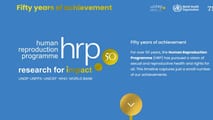Short comments on A.K. v. Latvia (no. 33011/08) and M. P. and others against Romania, no. 39974/10, 15/04/2014
Recently, the ECHR ruled on two cases of wrongful life and wrongful birth actions, regarding an allegation of medical negligence in antenatal care leading to the non-abortion and the birth of two handicapped children.
A.K. v. Latvia
In the most recent judgment, A.K. v. Latvia case (no. 33011/08), delivered on the 24th of June 2014, the majority of the Fourth Section found (six votes to one) a violation of the procedural aspect of the right to private life (Article 8 of the Convention) of Ms. A.K., who, on June 2002, gave birth to a daughter with Down’s syndrome (she was aged 40). She alleged before the ECHR that she had been denied adequate and timely medical care in the form of an antenatal screening test (AFP) which would have indicated the risk of her fetus having a genetic disorder and would have allowed her to choose whether to continue or to abort the pregnancy. She also complained that the national courts, by wrongly interpreting the Medical Treatment Law and not condemning her gynecologist for medical negligence in antenatal care, had failed to establish an infringement of her right to respect for her private life.
At the national level, Ms. A.K.’s civil claim for damages against the hospital was rejected by the Latvian courts. They found that the applicant was to blame for the fact that the antenatal screening test had not been carried out, as she had not turned up for the test and had not informed her doctor about the risk of genetic illness running in her family (her eldest son has schizophrenia). The courts also found that she was not in a high-risk category merely on account of her age and that there was no causal link between the birth of her daughter with Down’s syndrome and the failure to ensure that she had the prenatal test.
The ECLJ intervened before the ECHR as third party in the case and submitted written observations. A large number of European Down’s Syndrome organizations joined in a coalition opposing the creation of a “human right to eugenics”. They published a declaration named “Stop Eugenics Now” presented at a conference hosted at the Council of Europe in July 2012.
Regarding abortion, the Court recalled that “the decision of a pregnant woman to continue her pregnancy or not belongs to the sphere of private life and autonomy and that, as a consequence, legislation regulating the interruption of pregnancy touches upon the sphere of private life” (§63). But while the applicant argued that she was denied the right to have an AFP test and, consequently, the right to choose to abort her disabled child, the Court considered that the “case does not directly concern the applicant’s decision whether or not to continue her pregnancy but rather questions whether she was provided the necessary information and whether her medical care complied with domestic law.” The Court added that “In this respect, the Court’s case-law confirms that where a complaint concerns the exercise of the right of effective access to information concerning health, it is linked to private and family life under Article 8” (§ 63).
Consequently, the majority of the Fourth Section did not enter into the moral question of the case, i.e. the issue of “wrongful birth” and eugenics, but limited itself to examining the way in which the internal courts assess the applicant’s complaint: “With regard to the principle of subsidiarity, the Court considers that it was primarily the domestic courts duty to investigate the inconsistencies identified above, in proceedings affording the applicant the necessary procedural safeguards, and to decide whether the antenatal medical care offered to the applicant by Dr L. was compatible with her rights under Article 8 of the Convention in all the circumstances of the case. Accordingly, in the circumstances of the present case, it is appropriate for the Court to limit itself to examining the procedural aspect of Article 8” (§ 93).
It is unusual and remarkable that the Court decides to abstain from entering into a controversial and ideological matter – the right to eugenics – and leaves the decision to be made by the national authorities. One may consider that such a decision is aimed at avoiding controversies; another may believe that it implements the Member States demand for more respect of the principle of subsidiarity and for more judicial self restraint. The Court probably acted for both.
Finally, limiting itself to the procedural aspect of Article 8, the Court concluded to the arbitrariness of the internal courts’ decisions due to various discrepancies, especially factual ones (§94)[1]. Importantly, the Court refused to allow pecuniary damages to the applicant, ruling that there is no “causal link between the violation found [on account of the manner in which the applicant’s civil claim in negligence was treated by the domestic courts] and the claim in respect of pecuniary damage. Accordingly, no award can be made under this head” (§ 98). The applicant claimed 48,748 euros in lost income, since she is unable to work as a result of the need to take care of her child; and 204,294 euros by way of an allowance for her child.
Judge Kalaydjieva and Judge Mahoney each drafted a separate opinion to the judgment. In its separate opinion, Judge Kalaydjieva agreed with the majority of judges but pointed out that the applicant’s complaint, in so far as it concerns flaws of the domestic courts’ scrutiny, should have been analyzed under article 6 of the Convention. Judge Mahoney formulated a dissenting opinion, considering that it is not the ECHR’s duty, as an international Court, to assess the evidence already assessed by the internal courts. He also esteemed that the nature of the procedural shortcomings identified by the majority leads to the “dilution of the serious notion of arbitrariness” and “to the substitution of the ECHR for the national courts”, which will finally “run counter to the effective functioning of the Convention system in accordance with the principle of subsidiarity” (§ 2). As to the “factual discrepancies” identified by the majority of the Fourth Section, judge Mahoney considered that, taking into account the facts of the case, they are “hardly indicative of arbitrariness or a failure to sufficiently address the right to respect for private life”(§ 3). Judge Mahoney’s opinion has to be taken into account, especially in regard to his long experience at the Court, as registrar before being elected as a judge.
M. P. and others v. Romania
The Court also ruled with some degree of self restraint in the recent decision in M. P. and others against Romania, (no. 39974/10, 15/04/2014). This case was introduced by two parents and their child conceived by artificial insemination and born without tibia. They considered that the child’s right to life was infringed by his birth as a disabled child as a result of medical negligence (wrongful life action). They also considered that the birth of their disabled child had infringed the parent’s right to the protection of their private and family life (Article 8 of the Convention). Therefore, they claimed that they had the right to receive compensation for a “wrongful life” and a “wrongful birth”, as the birth of their child was due to the negligence of the doctors who failed to notice the absence of tibia of the child at the various ultrasound scans.
On the “wrongful life” claim,the Court abstained from deciding on an alleged right of a handicapped child of “not being born, or that of not being the result of the doctor’s mistake, or that of being alive, healthy and not suffering as a result of another’s negligence” (§ 43). The Court avoided deciding “whether this alleged right could be included in or contrasted with” the applicant’s “right to decide how and when his or her life should end, provided that he or she was in a position to freely form his or her own will and to act accordingly” (§§ 42-43).
According to the recent case law of the ECHR, such decisions to end one’s own life is a right guaranteed within the right to respect for private life (Article 8 of the Convention). The Court found that it is unnecessary to deal with this issue because the complaint is inadmissible for another motive.
Regarding the “wrongful birth” claim, i.e. the right of the parents infringed by the birth of the handicapped child, the Court reaffirmed its previous controversial ruling in Costa and Pavan v. Italy, (no. 54270/10, § 50, 28 August 2012), according to which “the parents’ desire to conceive a child unaffected by a genetic disease [is] a form of expression of their private and family life” and therefore falls within the scope of Article 8 of the Convention. Looking to the merits of this complaint, the Court noted that the national authorities acknowledged the alleged violation of parent’s rights and afforded them redress, concluding that the parents were no longer victims in the sense of the Convention.
The ECLJ, together with two Romanian NGOs, also intervened as third parties in the procedure and submitted written observations.
[1]“The domestic courts’ approach to the applicant’s claim discloses the appearance of arbitrariness. The cumulative effect of the failings identified was that the domestic courts did not properly examine the applicant’s claim that she had not received medical care and information in accordance with domestic law in a manner sufficient to ensure the protection of her interests”














